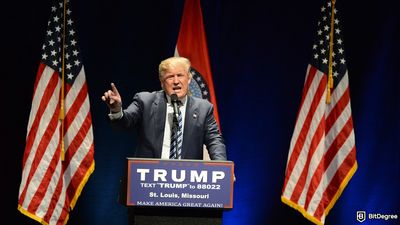It seems that SBF is ready to face criminal charges in the United States.
Sam Bankman-Fried (SBF), a co-founder and former CEO of now-bankrupt crypto exchange FTX, is reportedly ready to be extradited to the United States.
According to the news report shared by Reuters on December 20th, the news was revealed by a person familiar with the matter.

Did you know?
Want to get smarter & wealthier with crypto?
Subscribe - We publish new crypto explainer videos every week!
What is Basic Attention Token (BAT)? Brave Browser EASILY Explained


Initially, Bankman-Fried did not want to be extradited to the United States to face multiple criminal charges. However, after a very abrupt appearance before the Bahamas Magistrate Court on December 19th, the former FTX CEO seemed to change his mind.
It is worth remembering that in the United States, Sam Bankman-Fried is charged with participating in wire fraud, money laundering, wire fraud conspiracy, securities fraud and securities fraud conspiracy. Considering all charges, the man can face up to 115 years in prison.
On top of that, the Securities and Exchange Commission, the Justice Department and the Commodity Futures Trading Commission have issued separate civil charges, blaming SBF for violating financial laws and defrauding investors.
Jerome Roberts, a member of Sam Bankman-Fried’s defence team, stated that:
Mr. Bankman-Fried wishes to put the customers right, and that is what has driven his decision.
On top of that, Roberts hopes that Bankman-Fried will be able to return before the court at some point this week to finalize his extradition.
Despite Roberts' claims, there may be another reason for such a sudden decision by Sam Bankman-Fried. After being arrested on December 12th, SBF is held at a Fox Hill Prison in Nassau, known for overcrowding and lacking sanitation.
Moreover, after being relocated to the United States, SBF will be able to request US authorities to be released on bail. It is worth noting that Sam Bankman-Fried’s attempt to be released on bail in the Bahamas was rejected. Judge JoyAnn Ferguson-Pratt denied the request stating that there was a “risk of flight.”






















